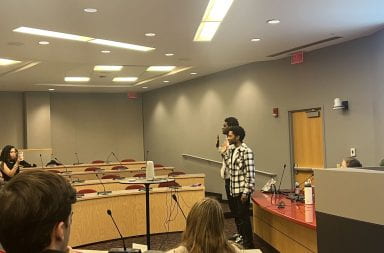After years of adamantly denying doping allegations, Lance Armstrong has finally decided to come clean: He used performance-enhancing drugs during his cycling career.
The admission came during a 2 1/2-hour interview with Oprah Winfrey that was taped Monday and will air over the course of Thursday and Friday night. The confession was a shocking turnaround, considering the multiple statements and interviews in recent years in which Armstrong vehemently denied his use of performance-enhancing drugs – allegations that he has been hit with since his first Tour de France victory in 1999.
But does this in itself make him a bad person?
There’s no denying the fact that Armstrong, whose seven Tour de France titles and bronze medal from the 2000 Olympics were stripped from him, has faced stiff opposition – from officials and the public alike – and many are quick to condemn him for his dishonesty.
But let’s look at Armstrong as a duality: There is Armstrong the athlete, and then there’s Armstrong the philanthropist.
As a kid, I often heard an adage to the effect of this: “It’s not what you do on the field but what you do off the field that makes you who you are.”
Viewing Armstrong with this mindset, we can see that he wasn’t so bad.
In 1997 Armstrong founded the Livestrong Foundation, formerly known as the Lance Armstrong Foundation, an organization with the goal of supporting people who have been affected by cancer. Since its inception, it has raised more than $470 million, with 81 cents of every dollar going toward programs and services for cancer survivors, according to Livestrong.org.
Armstrong, much like his Major League Baseball counterparts – Barry Bonds, Roger Clemens and Sammy Sosa – who were all denied entrance into the Baseball Hall of Fame earlier this month because they were linked to using performance-enhancing drugs, might have tarnished his reputation, but his legacy as a proponent of helping those affected by cancer will live on. I’d say that’s a pretty good trade-off.


